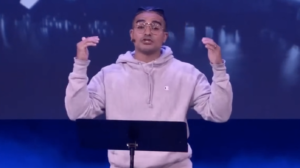A few weeks back my uncle passed away. He was 80 years old, a pillar in our community back in Michigan, and easy to celebrate. He was born in Robstown, TX, and like all of my aunts and uncles, was raised in the valley of Texas as a migrant worker. My family members were all raised as blue-collar, salt of the earth type people. My grandmother raised them to be hospitable, how to clean up well after a hard day’s work, how to hold their head up high, and to be proud of being Mexican…pero Mexicanos que aman a Jesus.
With all of the mourning, joy, reminiscing and hope that he brought…I found peace in knowing that my family is so rich. With all of our blindspots, all of our pain, all of our great meals together, and still not being able to master my grandmother’s recipe for the perfect tamales…we have what matters. According to my grandmother and my mom…we have Jesus, we have food on the table, a place to sleep and the breath in our lungs (which means we have hope).
As we jump into Matthew 6 in this “if Jesus was serious” series, I think my grandmother just might sum up the whole thing with a statement like “If Jesus was serious, then in Him, we have more than enough”
In verses 1-18 of Matthew 6 Jesus talks about giving to the needy, prayer, and fasting the big 3 spiritual disciplines of Jewish people at that time. And He basically teaches us in all 3 examples- First, value your private intimacy with God over your public image of how you want to be perceived. He’s building on this same issue when He gets to money because He knows so many of us worship at the feet of money and possessions because we value our outward status over the status of our heart.
Today we’re unpacking something you hear often from us when we say our Journey of Generosity. Maybe you’ve heard that and wondered what it’s about. We wanted to unpack that together using these verses, Jesus’ words as our compass. And yes we’re talking about money, generosity, and giving. But hopefully from a different vantage point. Maybe some of you are already checking out and rolling your eyes for these reasons:
- You think it’s self-serving
- You think the church is after people’s money
- It makes you feel guilt or shame
- Etc
But the truth is we don’t want to avoid conversations that may feel tense. I mean Jesus goes after A LOT of tense things in the Sermon on the Mount. Everyone would’ve left there feeling convicted or challenged or ticked off, or all 3, but here’s the clue, it’s been our key verse throughout- Matthew 7:28-29: 28 When Jesus had finished saying these things, the crowds were amazed at his teaching, 29 because he taught as one who had authority, and not as their teachers of the law. Despite some tough teachings the people that stuck with Him didn’t just love what he had to say, they also began to trust Him as Lord, one with authority.
And Jesus didn’t shy away from talking about money not just here but in multiple places in the Gospels. And the kicker is He’s talking to a group of people in agrarian society, many living in abject poverty, most literally not knowing where their next meal was coming from, and almost all living, not paycheck to paycheck, but day to day. So if Jesus could teach this crowd 2000 years ago about money how much more would he say to the richest country in the world where we still struggle with the idea of “I don’t have enough” and where for so many if not all of us at some point, money has become such a pain point. And a frankly a god in our lives. You’ll see that Jesus’ teaching is actually a life of generosity is the key to unlocking a rich life. Not rich in possessions, but rather abundant when it comes to His kingdom.
So I want to hit on 2 obstacles (as Jesus did) to generosity and freeing ourselves from the tyranny of money. 2 obstacles- wealth and worry. And then provide a 3rd way, the way of Jesus. As He does over and over in the SOTM Jesus doesn’t say “its fight or flight”, He always offers a BETTER WAY. The choice doesn’t have to be wealth or worry, hoarding or hopelessness, but we can choose the way of Jesus. So let’s look at the first obstacle- wealth.
If Jesus was serious, then our lives are either worshiping God or worshiping wealth.
19 “Do not store up for yourselves treasures on earth, where moths and vermin destroy, and where thieves break in and steal. 20 But store up for yourselves treasures in heaven, where moths and vermin do not destroy, and where thieves do not break in and steal. 21 For where your treasure is, there your heart will be also.
- Jesus is saying something many Jewish texts taught- a generous person could trust that God would help them in time of need; sometimes like here it meant in the world to come (or the kingdom to come)
- When Jesus says “heaven” He is not saying the place you go where you die. That is our own limited understanding. He’s talking about the invisible spiritual realm/kingdom that is all around the visible natural world. A kingdom that he says over and over is now “Here”
- Jesus is telling them and telling us, don’t invest or simply give your life over to an accumulation of earthly things. But rather the wisest investments are the ones that will last an eternity. The things you can touch, count, see the ROI on, all that’s going to pass. But a kingdom-built life will last forever.
- Treasures in Heaven = “How I’ve taught you to live in this Sermon”…That is what it looks like to build treasure in heaven; that is what it looks like to build the kingdom.
- A generous life is a life that you freely give away
- 22 “The eye is the lamp of the body. If your eyes are healthy, your whole body will be full of light. 23 But if your eyes are unhealthy your whole body will be full of darkness. If then the light within you is darkness, how great is that darkness!
- This portion to those not knowing the context feels weird and out of order. But in the ancient world there was the belief that sight was the process of when light passed out of the body through the eyes. (Of course we know now that it’s the inverse- light comes in through the eye). But Jesus uses this framework of understanding to say, the way we see the world is an indication of what is happening on the inside of us. It’s a common refrain in the SOTM- the heart issue
- “Healthy eye” in this economic context is translated other places in Scripture (Deut. 15:9 & Matt. 20:15) as “generous”
- “Bad eye” is translated as “stingy” or “grudgingly”
- Jesus is saying the way we handle our wealth and resources is a reflection of our hearts
- Those who practice generosity, seeing the world with compassion and trusting God with their resources, are full of light. Those who are greedy, seeing only their own needs and desire for MORE, are full of darkness
- In essence He’s telling us generosity is not a wallet issue, it’s a heart issue. And when you’re not generous you’re robbing yourself of seeing a world full of color and beauty.
- 24 “No one can serve two masters. Either you will hate the one and love the other, or you will be devoted to the one and despise the other. You cannot serve both God and money.
- He uses this metaphor of slave and master, when you hear that don’t think chattel slavery, but rather indentured servant. He says if you serve 2 masters your interests are divided. It’s impossible to please both.
- “Mammon” was Aramaic for possessions or money. He personifies it as an idol, because he knows how prone we are across time and culture to worship our money and our possessions
- Our pursuit of money and wealth at all costs will make us think “I can be like God if if just get ______” OR it will leave us in a state of anxiety always thinking we are lacking. Which leads us to the second obstacle- Worry
- If Jesus was serious, then we’re either consistently placing our trust in God or placing our trust in ourselves
- 25 “Therefore I tell you, do not worry about your life, what you will eat or drink; or about your body, what you will wear. Is not life more than food, and the body more than clothes? 26 Look at the birds of the air; they do not sow or reap or store away in barns, and yet your heavenly Father feeds them. Are you not much more valuable than they? 27 Can any one of you by worrying add a single hour to your life?
- Worry in the Greek is “merinmao” literally meaning a divided mind. “Merinmao” in the Scripture could be intense care and concern for something or someone’s welfare, but also anxiety about the issues of life.
- Jesus is talking to people who rarely knew where or how tomorrow’s meal was coming from, even if they had a steady job. And He’s telling them and telling us, “don’t live with the weight of that worry and stress because it’ll eat you alive.”
- Jesus’ argument was a standard Jewish debate technique of lesser and greater- “How much more?” (qal vahommer). He’s teaching us if God has everything cared for in the natural order, then of course He will take care of you when you put your trust in Him
- Many flowers were “thrown in the fire” as fuel for bread-baking
- 28 “And why do you worry about clothes? See how the flowers of the field grow. They do not labor or spin. 29 Yet I tell you that not even Solomon in all his splendor was dressed like one of these. 30 If that is how God clothes the grass of the field, which is here today and tomorrow is thrown into the fire, will he not much more clothe you—you of little faith? 31 So do not worry, saying, ‘What shall we eat?’ or ‘What shall we drink?’ or ‘What shall we wear?’ 32 For the pagans run after all these things, and your heavenly Father knows that you need them.
“It is often said that we are continually being crucified between 2 thieves- the regrets of yesterday and the worries about tomorrow.” –Warren Weirsbe
- Jesus says, if you waste your life worrying about these things, how are you any different than people who don’t follow God? (and maybe you’re honest and say you’re in that camp today). So he gives a 3rd option- seek and build the kingdom and watch what God does.
- If Jesus was serious, then in Him, we have more than enough.
- 33 But seek first his kingdom and his righteousness, and all these things will be given to you as well. 34 Therefore do not worry about tomorrow, for tomorrow will worry about itself. Each day has enough trouble of its own.
- Jesus says don’t fall for the trap of money OR the hole of despair that is a worried life with a lens of lack.
- The application for us is not the extremes of denying all material concerns, or that making provisions for the future demonstrates a lack of faith. Please don’t think Jesus says “burn your Roth IRA”
- He is inviting you into a generous life that trusts God with your resources and gives it away freely to build his kingdom. And not the tyranny building your own kingdom that is equivalent to a sandcastle- here today and then gone tomorrow
- He calls us into a life of radical obedience to Him and his word. And when we orient our whole selves including our resources around Him, then we will see God provide what we need.
- This is formatted in a promise. “Seek FIRST his kingdom and HIS righteousness, and all these things will be added as well”
- Will you take Him up on it?



